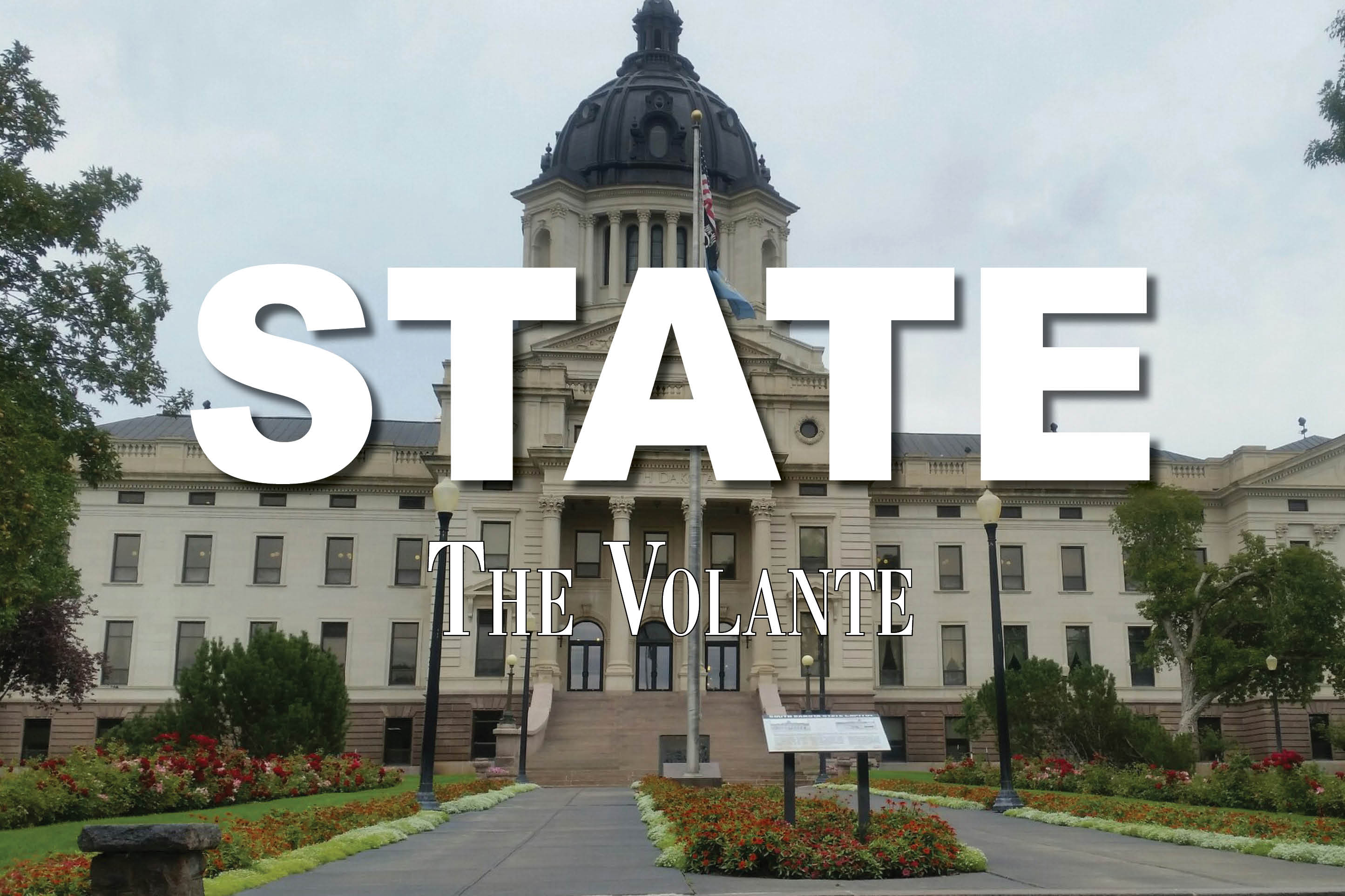
State legislature at work while students make their voices heard
While the state legislature works from January to March to pass bills that will impact South Dakota, USD students are also working hard to make their voices heard by driving to Pierre to testify, writing their representatives or interning in Pierre.
McNary testifies in opposition of HB 1073
House Bill 1073’s purpose was to add protections to free speech on college campuses in South Dakota. It was killed in committee on Friday.
USD’s and SDSU’s student governments have both passed resolutions in opposition to the bill. Last week SGA President Teagan McNary and SDSU’s student association president, Taylin Albrecht, went to Pierre to testify before the house committee.
McNary said after speaking with Albrecht and USD administrators, both schools decided to pass the same resolution so they could testify together.
“It ended up working out really well,” McNary said. “Taylin and I went and spoke together and it ended up being very well received.”
While testifying for the first time was intimidating, McNary said she thinks legislators do appreciate hearing students opinions.
“(Representative Lust) came up to us at the end (and) was like we’ve had a lot of experts come and testify but the testimony that really hit home for me was the SDSU and USD president and that’s why I’ll be voting the way I vote today,” McNary said.
President Abbott also testified for the opposition.
McNary said the opposition just doesn’t see the bill as necessary.
“I don’t think we have a free speech issue on campus,” she said. “It puts a huge burden on the universities because it allows for lawsuit on the basis of this piece of legislation, whether that be the university as a whole or against any individual person acting on behalf of the university.”
Interning with state legislatures
Mary Merxbauer, a sophomore English major, has been interning with the South Dakota state senate this legislative session. She’s been working with the republican senators.
She said her work load varies depending on the bills that are heard and voted on, but things have heated up as more controversial bills have been debated.
“I know sometimes I don’t feel like I’m very involved or I know a lot,” Merxbauer said. “Coming here as an intern, I’m able to learn so much more about our state and I get to know the people that are actually making those decisions.”
She said it’s crucial for students to get involved in state politics by voting in local elections in order to make change.
“I’d say it’s really important to stay involved because a lot of times I feel like people our age think that our vote doesn’t matter, but a lot of the times it comes down to local voting for your senators and it really does matter,” she said. “Because those are the people that make decisions for our state and theres a lot of different ways to get involved.”
Merxbauer listed multiple ways for students to get involved in state politics, including attending local cracker barrels, writing legislators or attending legislative sessions in Pierre.
“Just getting involved when you are actually concerned about something,” she said. “There’s lots of ways to make bills and get legislators on your side, they are not here to make poor bills for us. They are here to do what the people want for our state.”
Hulse examines state checks and balances
Amber Hulse is a first-year political science major interning at the South Dakota Secretary of State’s Office this legislative session. She said the work she’s doing has let her understand checks and balances up close.
“(I do) a little bit of everything and it’s really interesting to see a different side of government and see what they do upstairs (in the legislature) and how it effects us (the secretary of state), an agency they’re making changes to,” Hulse said.
Hulse has also seen representatives work through their decision-making processes.
“It’s cool to have all these discussions and have the representatives come down and talk about their bill, and their idea is a good idea, but then what it’s going to really do? And the changes that it’s going to make? And the money that it’s going to cost the state?” she said. “They begin to realize that their great idea isn’t really such a great idea in the long run.”
The diversity of backgrounds of the state interns has amazed Hulse, she said.
“I’m a freshman and I’m fairing just fine in the capitol, so you don’t have to wait until you’re a junior or senior to do an internship like this,” Hulse said. “You can really be however old you are and be whatever major you are and still participate and have relevant information to bring to the table.”
Student inclusion in the system is important to future political success, Hulse said.
“I think (it’s) really important is for young people to feel like we have a voice and actually be a part of the process so we don’t feel like we’re voiceless, because a lot of the interns that I’m working with have learned so much about political efficacy,” she said.

